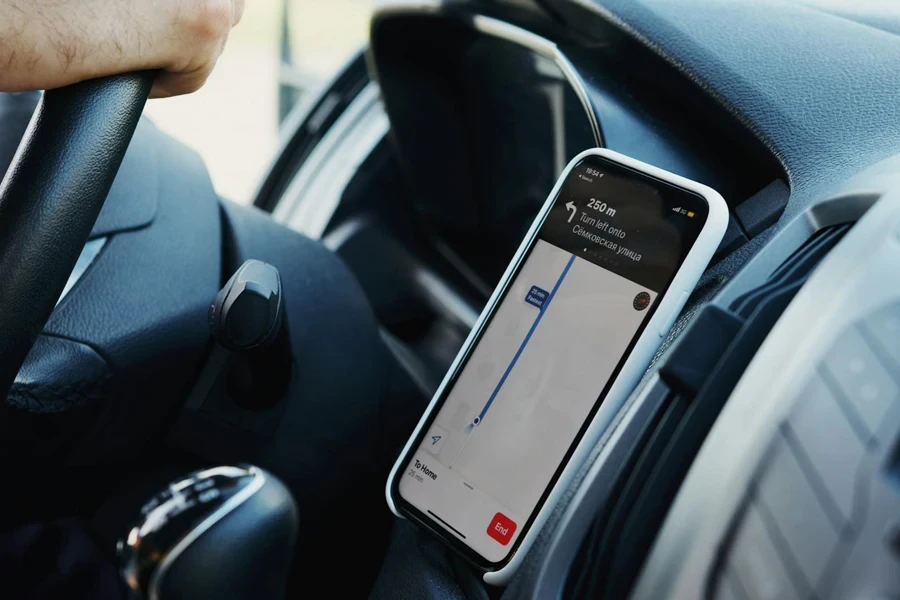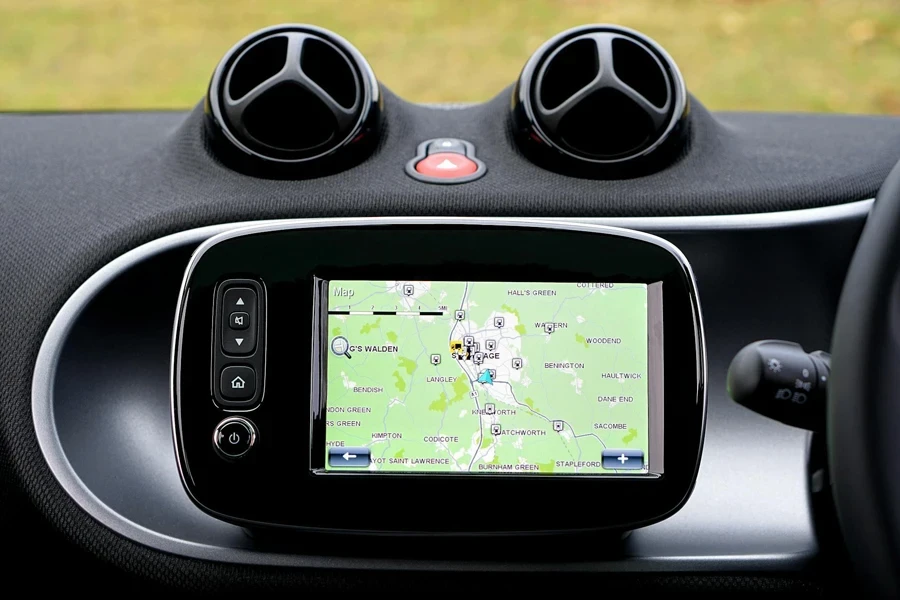Table of Contents
● Introduction
● Market overview
● Different types and their features
● Things to consider when selecting products
● Conclusion
Introduction

In today’s competitive landscape, GPS trackers have become essential tools for enhancing vehicle security and management. These devices provide real-time location data, ensuring that vehicles are monitored efficiently and effectively. Selecting the right GPS tracker is crucial as it offers significant benefits, including improved security, optimized fleet management, and cost savings through better route planning. By integrating advanced tracking technology, businesses can safeguard their assets and streamline operations. Investing in a good GPS tracker ensures that vehicles are always under surveillance, contributing to overall operational efficiency and security.
Market overview

Market scale and growth
The global automotive GPS modules market was valued at USD 3.50 billion in 2022 and is projected to grow to USD 6.94 billion by 2030, exhibiting a CAGR of 7.9% during the forecast period (2024-2031). This growth is driven by the increasing demand for GPS-enabled vehicles, advancements in connected car technologies, and the rising need for real-time location-based information in various applications such as navigation and fleet management. The market is segmented into three main types: embedded GPS modules, external GPS modules, and hybrid GPS modules, with embedded modules holding the largest market share due to their seamless integration into vehicle electronics and growing adoption in connected cars.
Regional insights
Regionally, North America dominates the market, accounting for the largest share due to the high adoption rate of connected cars and the presence of major automotive OEMs. Europe also holds a significant market share, driven by the demand for advanced navigation and driver assistance systems. The Asia Pacific region is expected to witness rapid growth, fueled by the increasing adoption of GPS-enabled vehicles in countries like China and India. Additionally, Latin America and the Middle East & Africa are anticipated to experience moderate growth, supported by the rising use of GPS modules in various automotive applications. Emerging trends such as the integration of GPS modules with advanced driver assistance systems (ADAS) and the development of autonomous vehicles are creating new opportunities in the market.
Different types and their features

Plug-and-play GPS trackers
Plug-and-Play GPS trackers are designed for easy installation, typically connecting directly to a vehicle’s OBD-II port, located under the dashboard. These trackers offer real-time tracking with updates on location, speed, routes, and total mileage, providing a comprehensive monitoring solution. They support quick setup and activation without the need for professional installation. Portability is a key feature, allowing these devices to be easily transferred between vehicles. Most Plug-and-Play trackers support 4G LTE networks for fast data transmission and often include additional features like geofencing and instant alerts.
Hardwired GPS trackers
Hardwired GPS trackers are integrated into the vehicle’s electrical system, offering a more permanent and discreet monitoring solution. These devices are typically installed under the vehicle’s bonnet, away from easy access, reducing the risk of tampering. Installation requires professional assistance to connect the tracker to the vehicle’s power supply and other systems. Hardwired trackers often support advanced features such as engine diagnostics, fuel monitoring, and integration with vehicle telematics. They provide continuous power supply and stable connectivity, essential for fleet management applications.
Battery-powered GPS trackers
Battery-powered GPS trackers are portable devices that can be placed anywhere in the vehicle, offering flexibility and ease of use. They operate on rechargeable batteries, with battery life varying from a few days to several months, depending on usage and data transmission frequency. These trackers are ideal for temporary tracking needs and can be moved between different assets. Advanced models include power-saving modes to extend battery life and may support real-time tracking, geofencing, and motion detection alerts.
Active GPS trackers
Active GPS trackers utilize real-time satellite technology to provide immediate location updates. These devices require a constant power source, either through regular recharging or connection to the vehicle’s electrical system. Active trackers often involve subscription services for data transmission and access to tracking platforms. They support features like real-time tracking, route optimization, and instant alerts for events such as unauthorized movement or boundary breaches. Active trackers are crucial for applications requiring continuous monitoring, such as fleet management and vehicle security.
Passive GPS trackers
Passive GPS trackers store location data internally, which can be retrieved later for analysis. These devices are cost-effective and are primarily used for historical route analysis and compliance reporting. Passive trackers do not offer real-time tracking but are equipped with large memory storage to log detailed trip data, including speed, stops, and travel routes. Data is typically downloaded via USB or wireless transfer when the vehicle returns to a central location. These trackers are suitable for applications where real-time tracking is not critical but detailed historical data is needed.
Asset GPS trackers
Asset GPS trackers are designed for monitoring high-value assets and equipment, featuring rugged and durable designs capable of withstanding harsh environments. These trackers have long-lasting batteries, often with life spans extending up to several years, and are built to resist water, dust, and extreme temperatures. Asset trackers provide real-time location data, aiding in theft prevention and efficient asset management. They can be attached to trailers, containers, and heavy machinery, supporting features such as geofencing, motion detection, and tamper alerts.
Things to consider when selecting products

Consider tracking needs
Identifying the primary purpose of a GPS tracker is crucial to ensure it meets specific requirements. For theft prevention, selecting a tracker with tamper alerts and geo-fencing capabilities is essential. Fleet management demands features such as route optimization, fuel monitoring, and integration with fleet management software. For driving behavior monitoring, trackers that provide detailed analytics on acceleration, braking patterns, and speed violations are recommended. Advanced trackers also offer APIs for custom integrations, allowing businesses to tailor tracking functionalities to their unique needs.
Research available features
Thoroughly researching available features is key to selecting the most suitable GPS tracker. Real-time tracking, which typically uses 4G LTE or satellite communication, provides high accuracy and reliability. Geo-fencing allows for setting up virtual boundaries, triggering alerts when the vehicle enters or exits specified areas. Route history and replay features are useful for analyzing past trips, and advanced driving behavior analysis tools can provide insights into driver performance, including harsh braking, rapid acceleration, and cornering. Devices supporting over-the-air (OTA) updates ensure the firmware can be updated remotely.
Installation requirements
Installation requirements vary significantly between GPS tracker types. Hardwired trackers, installed directly into the vehicle’s electrical system, offer a permanent and secure solution but require professional installation. These trackers can be connected to the CAN bus to provide detailed vehicle diagnostics. Plug-and-play trackers are easier to install, typically connecting to the OBD-II port, but may lack some advanced features. Ensuring the tracker supports necessary power sources, such as direct battery connection or auxiliary power options, and includes backup batteries for uninterrupted operation during power cuts, is important.
Subscription services
Many GPS trackers require a subscription for data services, which can include real-time tracking, cloud storage for historical data, and access to a web or mobile app. Comparing subscription plans based on data transmission frequency, data retention period, and additional services like dedicated customer support or custom reporting is crucial. Some providers offer global SIM cards for international tracking capabilities, which is essential for cross-border fleet operations. Evaluating the cost-effectiveness by considering the level of detail and frequency of updates needed, along with any additional analytical tools provided by the subscription, is advisable.
After-sales support
Effective after-sales support is critical for maintaining and troubleshooting GPS trackers. Ensuring the manufacturer offers robust support options, including 24/7 technical assistance, online resources, and a comprehensive warranty, is essential. Suppliers that provide remote diagnostics and troubleshooting via their tracking platform should be prioritized. A good support system may include training sessions for using the tracking software and regular updates to improve functionality and security. Reliable after-sales support ensures minimal downtime and maximizes the return on investment in GPS tracking technology.
Conclusion

Selecting the right GPS tracker is vital for enhancing vehicle security and operational efficiency. Understanding tracking needs, researching features, evaluating installation requirements, and considering subscription services are essential steps in making an informed choice. Effective after-sales support further ensures the longevity and reliability of the tracking solution. By carefully considering these factors, businesses can significantly improve fleet management, prevent theft, and optimize overall vehicle performance. Making an informed decision on GPS trackers will lead to better asset management and enhanced operational effectiveness.



